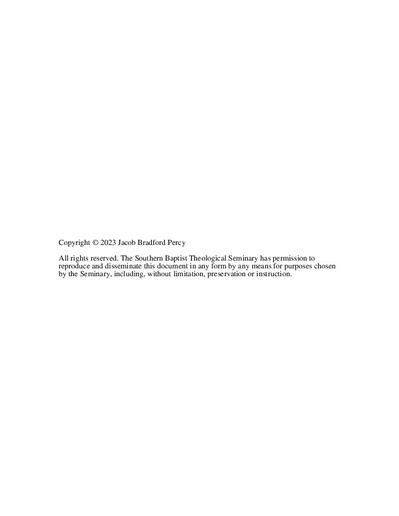| dc.description.abstract | In this dissertation, I develop a conception of gender that (1) holds that men and women share a common humanity that is grounded in their mutual creation in the image of God and results in the expression of common human properties and common human capacities in ways that are fitting to their masculinity or femininity, respectively, and (2) maintains the distinction between men and women as two unique types of humanity that is grounded in the created differences of gendered embodiment. This project aims to present and defend this conception of gender as consistent with Scripture, internally coherent, defensible against external critique, and valuable for contemporary discourse on gender. Chapter 1 serves as an introduction to this study. In chapter 2, I develop a framework for evaluating conceptions of gender based on Scripture’s teaching. In chapter 3, I define, evaluate, and critique gender essentialism, the view concerned with determining what fixed or innate qualities are intrinsic to being male or female. I ultimately conclude that gender essentialism does not satisfy the biblical criteria developed in chapter 2. In chapter 4, I survey and evaluate the social construction of gender, the view that affirms that gender is derived from societal forces and is not dependent on biological sex. I ultimately conclude that the social construction of gender also fails to satisfy the biblical criteria developed. In chapter 5, I construct a biblical conception of gender based on the view that there are no particular capacities or properties, outside of physiological differences, that belong exclusively to men or that belong exclusively to women. Instead, as I argue, men and women uniquely express common human traits as men and as women. According to this conception of gender, the common humanity of men and women serves as the foundation of the ontological equality of men and women. Hence, in this chapter, I offer an ontological definition of men and women. In chapter 6, I consider gender in the context of human embodiment to show how the emphasis on the common humanity of men and women is compatible with Scripture’s teaching on men and women as two distinct types of humanity. Chapter 7 concludes this study. | en_US |

